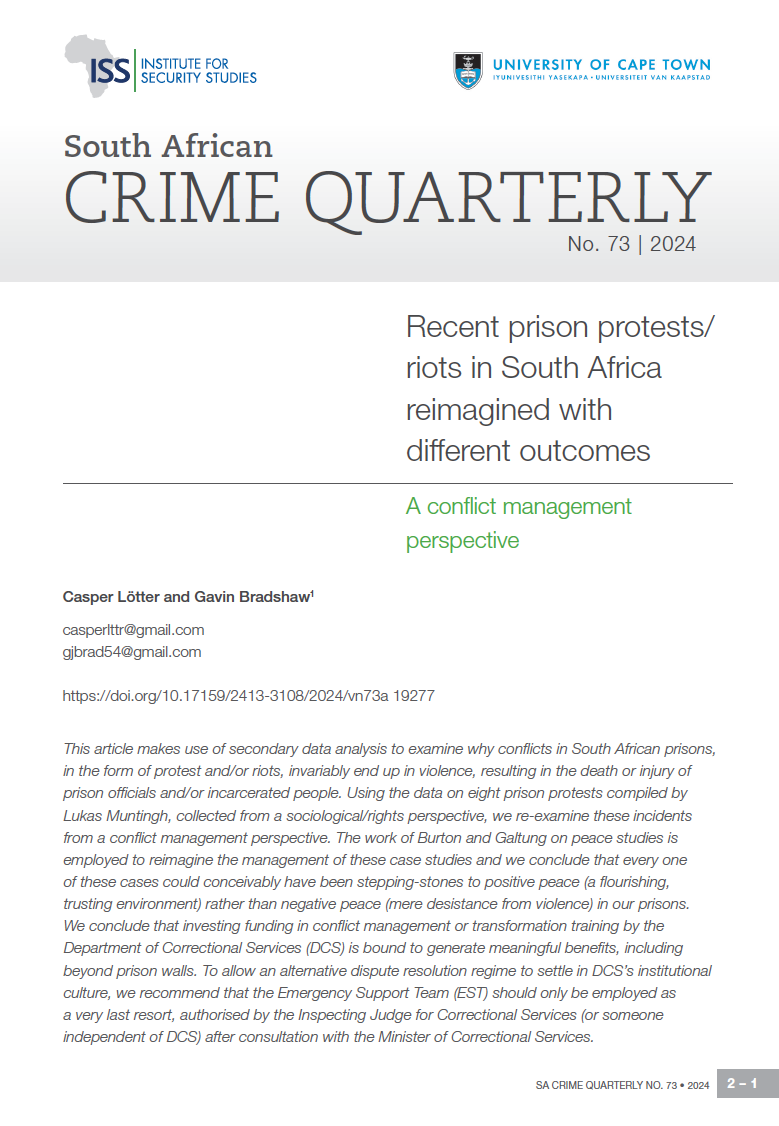Recent prison protests/ riots in South Africa reimagined with different outcomes: A conflict management perspective
DOI:
https://doi.org/10.17159/2413-3108/2024/vn73a19277Abstract
This article makes use of secondary data analysis to examine why conflicts in South African prisons, in the form of protest and/or riots, invariably end up in violence, resulting in the death or injury of prison officials and/or incarcerated people. Using the data on eight prison protests compiled by Lukas Muntingh, collected from a sociological/rights perspective, we re-examine these incidents from a conflict management perspective. The work of Burton and Galtung on peace studies is employed to reimagine the management of these case studies and we conclude that every one of these cases could conceivably have been stepping-stones to positive peace (a flourishing, trusting environment) rather than negative peace (mere desistance from violence) in our prisons. We conclude that investing funding in conflict management or transformation training by the Department of Correctional Services (DCS) is bound to generate meaningful benefits, including beyond prison walls. To allow an alternative dispute resolution regime to settle in DCS’s institutional culture, we recommend that the Emergency Support Team (EST) should only be employed as a very last resort, authorised by the Inspecting Judge for Correctional Services (or someone independent of DCS) after consultation with the Minister of Correctional Services.
Downloads

Downloads
Published
Issue
Section
License
Copyright (c) 2024 Author and Institute for Security Studies

This work is licensed under a Creative Commons Attribution 4.0 International License.
SACQ is licenced under a creative commons licence (CC BY) that allows others to distribute, remix, tweak, and build upon your work, even commercially, as long a they give appropriate credit, provide a link to the license, and indicate if changes were made. They may do so in any reasonable manner, but not in any way that suggests the licensor endorses you or your use.
Copyright for articles published is vested equally between the author/s, the Institute for Security Studies and the Centre of Criminology (UCT).



.png)